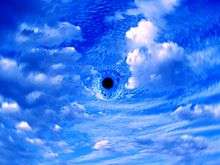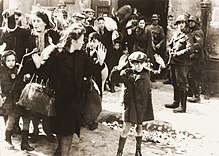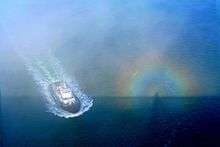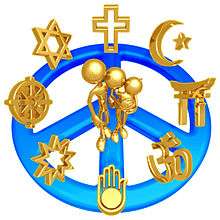Muriel Rukeyser (15 December 1913 – 12 February 1980) was an American poet and political activist, most famous for her poems about equality, feminism, social justice, and Judaism.
Quotes
- "I speak to you. You speak to me. Is that fragile?"
- "Waterlily Fire", IV: 'Fragile', in Waterlily Fire: Poems 1935-1962 (1962), and in Out of Silence: Selected Poems, ed. Kate Daniels (1994), p. 120
U.S. 1 (1938)


you to its meanings: gorge, boulder, precipice.
The Book of the Dead
- These are roads to take when you think of your country
and interested bring down the maps again,
phoning the statistician, asking the dear friend,
reading the papers with morning inquiry.- "The Road"
- Here is your road, tying
you to its meanings: gorge, boulder, precipice.
Telescoped down, the hard and stone-green river
cutting fast and direct into the town.- "The Road"
- What do you want — a cliff over a city?
A foreland, sloped to sea and overgrown with roses?
These people live here.- "Gauley Bridge"
- This is to be a summary poem of the life of the Atlantic coast of this country, nourished by the communications which run down it. Gauley Bridge is inland, but it was created by theories, systems, and workmen from many coastal sections — factors which are, in the end, not regional or national. Local images have one kind of reality. U.S. 1 will, I hope, have that kind and another too. Poetry can extend the document.
- Note, on "The Book of the Dead"
To be a Jew in the Twentieth Century (1944)
- To be a Jew in the twentieth century
Is to be offered a gift. If you refuse,
Wishing to be invisible, you choose
Death of the spirit, the stone insanity.
Accepting, take full life. Full agonies:
Your evening deep in labyrinthine blood
Of those who resist, fail, and resist: and God
Reduced to a hostage among hostages.The gift is torment.
- The whole and fertile spirit as guarantee
For every human freedom, suffering to be free,
Daring to live for the impossible.
The Life of Poetry (1949)
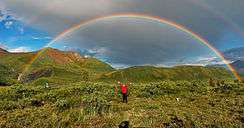

- In time of crisis, we summon up our strength.
Then, if we are lucky, we are able to call every resource, every forgotten image that can leap to our quickening, every memory that can make us know our power. And this luck is more than it seems to be: it depends on the long preparation of the self to be used.
In time of the crises of the spirit, we are aware of all our need, our need for each other and our need for our selves. We call up, with all the strength of summoning we have, our fullness.- Introduction
- In this moment when we face horizons and conflicts wider than ever before, we want our resources, the ways of strength. We look again to the human wish, its faiths, the means by which the imagination leads us to surpass ourselves.
If there is a feeling that something has been lost, it may be because much has not yet been used, much is still to be found and begun.
Everywhere we are told that our human resources are all to be used, that our civilization itself means the uses of everything it has — the inventions, the histories, every scrap of fact. But there is one kind of knowledge — infinitely precious, time-resistant more than monuments, here to be passed between the generations in any way it may be: never to be used. And that is poetry.- Chapter One : The Fear of Poetry
- Poetry is, above all, an approach to the truth of feeling, and what is the use of truth!
How do we use feeling?
How do we use truth!However confused the scene of our life appears, however torn we may be who now do face that scene, it can be faced, and we can go on to be whole.
If we use the resources we now have, we and the world itself may move in one fullness. Moment to moment, we can grow, if we can bring ourselves to meet the moment with our lives.- Chapter One : The Fear of Poetry
- Poetry is not; or seems not to be. But it appears that among the great conflicts of this culture, the conflict in our attitude toward poetry stands clearly lit. There are no guards built up to hide it. We call see its expression, and we can see its effects upon us. We can see our own conflict and our own resource if we look, now, at this art, which has been made of all the arts the one least acceptable.
Anyone dealing with poetry and the love of poetry must deal, then, with the hatred of poetry, and perhaps even Ignore with the indifference which is driven toward the center. It comes through as boredom, as name-calling, as the traditional attitude of the last hundred years which has chalked in the portrait of the poet as he is known to this society, which, as Herbert Read says, "does not challenge poetry in principle it merely treats it with ignorance, indifference and unconscious cruelty."
Poetry is foreign to us, we do not let it enter our daily lives.
- A poem does invite, it does require. What does it invite? A poem invites you to feel. More than that: it invites you to respond. And better than that: a poem invites a total response.
This response is total, but it is reached through the emotions. A fine poem will seize your imagination intellectually — that is, when you reach it, you will reach it intellectually too — but the way is through emotion, through what we call feeling.- Chapter One : The Fear of Poetry, p. 8
- The meanings of poetry take their growth through the interaction of the images and the music of the poem. The music is not the rhythm, which is a representation of life, alone. The music involves the interplay of the sounds of words, the length of the sequences, the keeping and breaking of rhythms, and the repetition and variation of syllables unrhymed and rhymed. It also involves the play of ideas and images.
- p. 31
- The statement of ideas in a poem may have to do with logic. More profoundly, it may be identified with the emotional progression of the poem, in terms of the music and images, so that the poem is alive throughout.
Another, more fundamental statement in poetry, is made through the images themselves — those declarations, evocative, exact, and musical, which move through time and are the actions of a poem.- p. 31
- The poetic image is not a static thing. It lives in time, as does the poem. Unless it is the first image of the poem, it has already been prepared for by other images; and it prepares us for further images and rhythms to come. Even if it is the first image of the poem, the establishment of the rhythm prepares us — musically — for the music of the image. And if its first word begins the poem, it has the role of putting into motion all the course of images and music of the entire work, with nothing to refer to, except perhaps a title.
- p. 32
- Belief has its structures, and its symbols change. Its tradition changes. All the relationships within these forms are inter-dependent. We look at the symbols, we hope to read them, we hope for sharing and communication. Sometimes it is there at once, we find it before the words arrive, as in the gesture of John Brown, or the communication of a great actor-dancer, whose gesture and attitude will tell us before his speech adds meaning from another source. Sometimes it rises in us sleeping, evoked by the images of dream, recognized in the blood. The buried voices carry a ground music; they have indeed lived the life of our people. In times of perversity and stress and sundering, it may be a life inverted, the poet who leaps from the ship into the sea; on the level of open belief, it will be the life of the tribe. In subjugated peoples, the poet emerges as prophet.
- p. 96
- There are ways in which poetry reaches the people who, for one reason or another, are walled off from it. Arriving in diluted forms, serving to point up an episode, to give to a climax an intensity that will carry it without adding heaviness, to travel toward the meaning of a work of graphic art, nevertheless poetry does arrive. And in the socially accepted forms, we may see the response and the fear, expressed without reserve, since they are expressed during enjoyment which has all the sanctions of society.
Close to song, poetry reaches us in the music we admit: the radio songs that flood our homes, the juke-boxes, places where we drink and eat, the songs of work for certain occupations, the stage-songs we hear as ticketed audience.- p. 109
- We sit here, very different each from the other, until the passion arrives to give us our equality, to make us part of the play, to make the play part of us.
- p. 126
- The continuity of film, in which the writer deals with a track of images moving at a given rate of speed, and a separate sound-track which is joined arbitrarily to the image-track, is closer to the continuity of poetry than anything else in art. But the heaviness of the collective work on a commercial film, the repressive codes and sanctions, unspoken and spoken, the company-town feeling raised to its highest, richest, most obsessive-compulsive level in Hollywood, puts the process at the end of any creative spectrum farthest from the making of a poem.
At the same time, almost anything that can be said to make the difficulties of poetry dissolve for the reader, or even to make the reader want to deal with those "difficulties," can be said in terms of film. These images are like the action sequences of a well-made movie — a good thriller will use the excitement of timing, of action let in from several approaches, of crisis prepared for emotionally and intellectually, so that you can look back and recognize the way of its arrival; or, better, feel it coming until the moment of proof arrives, meeting your memory and your recognition.
The cutting of films is a parable in the motion of any art that lives in time, as well as a parable in the ethics of communication.- p. 150
- In time of the crises of the spirit, we are aware of all of need, our need for each other and our need for ourselves. We call up our fullness; we turn, and act. We begin to be aware of correspondences, of the acknowledgement in us of necessity, and of the lands.
And poetry, among all this — where is there a place for poetry?
If poetry as it comes to us through action were all we had, it would be very much. For the dense and crucial moments, spoken under the stress of realization, full-bodied and compelling in their imagery, arrive with music, with our many kinds of theatre, and in the great prose. If we had these only, we would be open to the same influences, however diluted and applied. For these ways in which poetry reaches past the barriers set up by our culture, reaching toward those who refuse it in essential presence, are various, many-meaning, and certainly — in this period — more acceptable. They stand in the same relation to poetry as applied science to pure science.- p. 169; part of this statement is also used in the "Introduction"
- The creation of a poem, or mathematical creation, involves so much sense of arrival, so much selection, so much of the desire that makes choice — even though one or more of these may operate in the unconscious or partly conscious work-periods before the actual work is achieved — that the questions raised are very pertinent. . . . The poet chooses and selects and has that sense of arrival as the poem ends; he is expressing what it feels like to arrive at his meanings. If he has expressed that well, his reader will arrive at his meanings. The degree of appropriateness of expression depends on the preparing. By preparing I mean allowing the reader to feel the interdependences, the relations, within the poem.
These inter-dependences may be proved, if you will allow the term, in one or more ways: the music by which the syllables resolve may lead to a new theme, as in a verbal music, or to a climax, a key-relationship which makes — for the moment — an equilibrium; the images may have established their own progression in such a way that they serve to mark the poem’s development; the tensions and attractions between the poem’s meanings may mark its growth, as they must if the poem is to achieve its form.
A poem is an imaginary work, living in time, indicated in language. It is and it expresses; it allows us to express.- p. 181
- Experience taken into the body, breathed-in, so that reality is the completion of experience, and poetry is what is produced. And life is what is produced.
To stand against the idea of the fallen world, a powerful and destructive idea overshadowing Western poetry. In that sense, there is no lost Eden, and God is the future. The child walled-up in our life can be given his growth. In this growth is our security.- p. 221
- How can I look back and not speak of the stupid learning about birth? Of the stupid learning that people make love, and how it seemed the reason for all things, the intimacy of my wondering, the illumination that — to an adolescent — was the cause for life around me, the reason why the unhappy people I knew did not kill themselves?
- p. 222
The Speed of Darkness (1968)

Waking with sleeping, ourselves with each other,
Ourselves with ourselves. We would try by any means
To reach the limits of ourselves, to reach beyond ourselves,
To let go the means, to wake.
- The Universe is made of stories, not of atoms.
- "The Speed of Darkness"; this line is sometimes misquoted as "The Universe is made of stories not atoms."
- I lived in the first century of world wars.
Most mornings I would be more or less insane.- "Poem"
- Slowly I would get to pen and paper,
Make my poems for others unseen and unborn.
In the day I would be reminded of those men and women,
Brave, setting up signals across vast distances,
considering a nameless way of living, of almost unimagined values.- "Poem"
- We would try to imagine them, try to find each other,
To construct peace, to make love, to reconcile
Waking with sleeping, ourselves with each other,
Ourselves with ourselves. We would try by any means
To reach the limits of ourselves, to reach beyond ourselves,
To let go the means, to wake.- "Poem" — these lines are among those quoted on the The Pacifist Memorial
The Gates (1976)
- How shall we venture home?
How shall we tell each other of the poet?
How can we meet the judgment on the poet,
or his execution? How shall we free him?How shall we speak to the infant beginning to run?
All those beginning to run?- "The Gates"
- O for God's sake
they are connected
underneath.- "Islands"
Quotes about Rukeyser
- An "American genius," our "twentieth-century Whitman." Anne Sexton and Erica Jong both referred to Muriel Rukeyser as "the mother of everyone."
- Anne F. Herzog and Janet E. Kaufman in their Introduction to How Shall We Tell Each Other of the Poet? : The Life and Writing of Muriel Rukeyser (2001), p. xv
- Muriel Rukeyser unspools one of the most passionate arguments I've ever read for the notion that art creates meeting places, that poetry creates democracy.
- Muriel Rukeyser loved poetry more than anyone I've ever known. She also believed it could change us, move the world.
- Alice Walker, in promotional remark for the 1996 edition of The Life of Poetry (1949)
